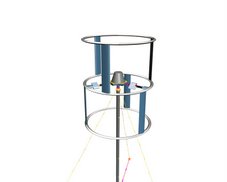I touched briefly on the notion of nameplates in renewables as a hangover from the legacy coal plant or gas-fired power systems in which all supply was predictably controlled. In predictable grids, talking about nameplates is very useful, as they indicate the peak capability and help you model loads, distribution, demand response, etc. Namplates are also useful in your house - knowing that your refridgerator will draw XX watts at peak operation is a must for proper circuit planning. The problems start when you transfer that notion to unpredictable, highly variegated renewables.
All of this notion about "metrics" and how broken they can be very much reminds me of Web 1.0, in which the key metric for evaluating websites were "page views". A good blog post on the demise of that metric can be found here.
What is perhaps surprising to me is that "page views" weren't really what mattered... Google, the largest, most successful Web based revenue model on the planet, in most respects, has monetized the opposite of the page view. The page leave? They earn revenue when you leave them. Granted, you had to get there, and find what you needed to leave. But even Serge Brin is famous for stating: our goal is to get you to leave our site as fast as possible. So that particularly blows away Web 1.0 metric notions around click-throughs, page minutes, etc. etc.
So, where will we get to in renewables if the legacy 'nameplate' is non sensical? Found some interesting threads on the web in regards to nameplates in renewables. Appearently, I am not the only one that thinks that nameplates are not necessarily representative or useful comparitives for different systems. The Interstate Renewable Energy Council is actively trying to come up with a proper certification program for solar hardware based on what they produce - not what they have as nameplates. ...Notes from that fall meeting are here.
Wednesday, March 21, 2007
On Nameplates and Metrics, Part Two
Posted by
Jeremy Stieglitz
at
10:31 PM
![]()
Labels: VAWT technology
Subscribe to:
Comment Feed (RSS)

|